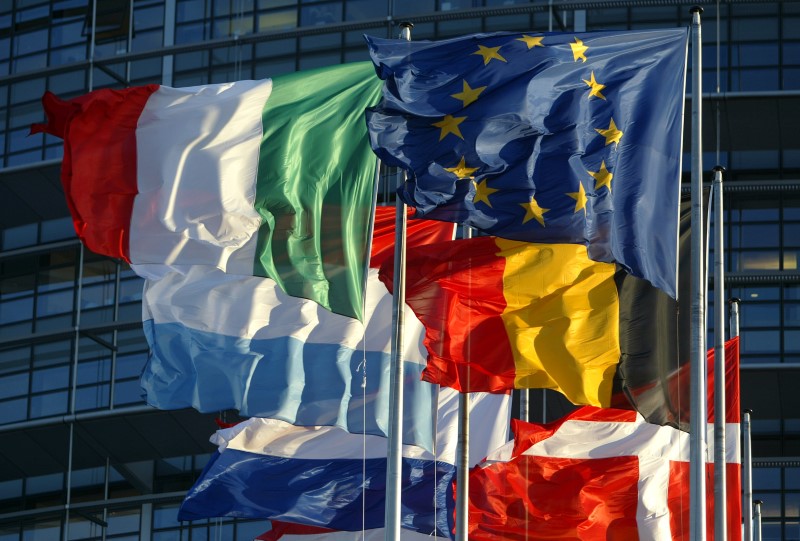By Tom Koerkemeier
BRUSSELS (Reuters) - A proposal by Germany and France to make it easier to suspend visa-free travel to the European Union from countries such as Turkey drew a frosty reception from the executive European Commission on Friday.
In what was seen as a move to make visa liberalisation for Turks, Ukrainians and Georgians more acceptable, Berlin and Paris wrote to EU partners this week calling for a tougher safeguard mechanism in case of a spike of asylum requests, overstays or readmission refusals.
Under their plan, which would have to be formally put forward by the Commission, any member state would be allowed to suspend visa-free travel from any country for six months unless EU states voted by a qualified majority to overrule it.
The proposal came in the midst of a debate about whether to extend visa liberalisation to Ankara by the end of June under a deal to curb the flow of refugees and migrants to Europe.
The Commission is due to report next Wednesday whether Turkey has met the 72 technical and legal conditions to qualify for visa-free travel. If so, member states and the European Parliament would have to approve the plan.
Berlin and Paris want the tougher safeguards, which their joint letter seen by Reuters called a "snap-back mechanism", to be adopted at the same time.
But a Commission spokeswoman said the EU visa regulation already contained a general suspension clause, which can be triggered for any country whose nationals are eligible for visa-free travel.
"The Commission currently has no intention to propose a revision of the existing suspension mechanism," she said.
The Franco-German letter, which diplomats said drew broad support at a meeting of EU ambassadors on Thursday, said the existing procedure took too long from the moment when a sudden increase in migration pressures or abuses was reported.
"The whole procedure should be faster than the current one, which takes at least 9 months from the beginning of a substantial increase," it said.

Paris and Berlin also suggested widening the criteria to combat what critics call "medical tourism", defined as a "substantial increase ... of the number of applications for residence permits with a low admission quota (e.g. for health reasons)."